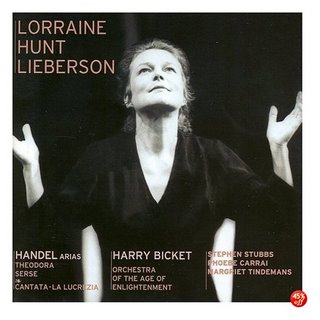
A blog, I can tell you, will whisper and scratch at you, should you neglect it for too many months ...
But a recent comment, the result of a cyber-stumble, has jostled me back to the sphere. Thanks to Paul for the note.
Jeremy Denk's recent posts (especially his funny encounters with frogs) make me think that he's lucky enough to have created a kind of living notebook where he can unburden his unceasingly inventive and associative mind. Nomadic pianists seem required to invent their secondary worlds of intrigue. And especially summer nomads in "FestivaLand" as he calls it, ("a performance, a reception, and an outgoing flight") where problems come up, and there's no time to debate or resolve them. He's now onto the subject which always seems to reject normal vocabulary -- the issue of "leaving a piece alone" ... letting it speak for itself .... Someone in FestivaLand had started in with the "just play it, don't interpret it" line of musical reasoning, prompting Jeremy to blog his heart out ("In my opinion, music doesn't want to be left alone.")
And this brings up the inevitable, somehow inane, discussion of where the player belongs in all the abstract layering of things: the composer's idea; the ideas in the player that the composer's idea inevitably must evoke; the arguable markings that plague the score; the trickery that can come with the visual display (or lack of it) that the player engages in; the ideas that are evoked in the listener's mind, which are born in part because of the player, who has played with his own ideas working urgently in his heart and mind (I hope) ... ideas that have been evoked by the composer's original idea, much of which is, in the end, up for deliciously abstract speculation.
There is a private realm within a musician. It's vast. It's not to be described. And it comes to life within the phrases (the ideas, the statements, the utterances, the music) of the composer. This realm is vital ... it must remain turned on. The door to it should never close. I suspect it's the same realm from which poetry is born.
Far beyond associative, it is a deep and fertile place in the imagination that connects us directly to music. Its power gives light and air and gravity and sensation and despair and shadow -- and all that's privately the most human of things -- to every phrase that a real musician really plays.
And great music invariably lights up this place in the heart/mind/imagination, so that the music becomes alive and develops a deeply satisfying sense of color, achingly human for the player, and mysteriously touching even for the listener who has never heard it before.
When the subject of "interpreting" and not mucking around with the score comes up ... when a listener makes conversation by implying that too many people "do too much" with the music, it brings all this up.
It's a hard conversation.
But play anything -- any phrase ... even just two consecutive notes ... with every marking intact, but without access to the poetic realm, and there is a dry and two-dimensional result that can feel downright offensive. Mostly, it's sad.
Today when I was teaching, I noticed that months ago I'd penciled in to the top of one of the pages of my student's Schubert sonata "Lorraine Hunt Lieberson -- Handel arias" ...
My heart skipped a beat. She was someone so completely connected to the poetic realm that not a single soul seemed to miss out.
I had wanted my student to be inspired by her. To find a way to be hugely communicative, even when the marking is pp.
Or better,
because the marking is pp.

1 comment:
Man, you are not kidding about musicians having a vast realm to create in. Every morning, after my second cup of coffee, I go into my "realm" and "create". My wife complains about the smell. I tell her to shut th' hell up before I "create" somethin' else. Jam on!
Piano Lessons
Post a Comment